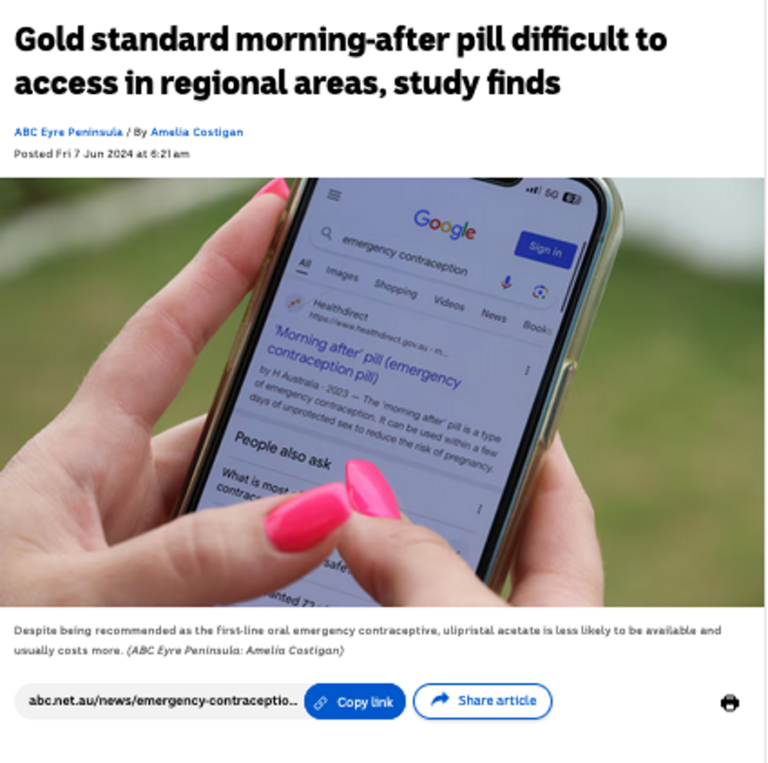UK: Lower prices for LNG EC
January 2022. Last December, Welsh Health authorities announced changes on the Community Pharmacy Contractual Framework. These will enable all pharmacies to provide emergency contraception (EC) and some forms of routine contraception. Other priority services that will be included are the common ailment, emergency medicine supply and seasonal influenza vaccination services. The 713 community pharmacies registered…

June 2024. A recent study assessed the availability of emergency contraceptive pills (ECPs) in Australian community pharmacies. The study found that 30 % of the pharmacies surveyed did not stock ulipristal acetate (UPA) ECPs, despite being recommended as the first-line oral EC. On average, UPA ECPs were 13$ more expensive than LNG ECPs. ECP accessibility…
This year’s UNFPA State of World Population Report focuses on adolescents and youth inherent human rights. The Report mentions that emergency contraception (EC) is something that adolescents particularly need because they use relatively ineffective methods, do not use contraceptive at all, or are more susceptible to coerced sex. How ever, youth access to EC is…
On May 15th, the Health Committee of the Bundestag (German parliament) resolved not to remove the prescription status of LNG EC. The coalition currently in office (CDU and FDP), turned down the request by the SPD and Die LINKE parties to change LNG to prescription-free status. The political parties that requested the change of status claim…
Over the past year, there have been discussions around whether hormonal contraception should be resumed immediately after the intake of UPA EC. The concern is that using a progestin-containing contraceptive could counteract the effects of UPA EC. UPA is an anti-progestin that works by delaying or inhibiting ovulation; if a progestin-containing contraceptive is administered at the…
June 2017. On June 23rd President Andrzej Duda finally signed the bill proposed by the ruling party Law and Justice (PiS), which will change the status of the only EC pill currently available without prescription in Poland (EC with ulipristal acetate, sold under the brand name ellaOne). The so called “Act of 25th May 2017…
Menú
This website uses cookies so that we can provide you with the best user experience possible. Cookie information is stored in your browser and performs functions such as recognising you when you return to our website and helping our team to understand which sections of the website you find most interesting and useful.
Strictly Necessary Cookie should be enabled at all times so that we can save your preferences for cookie settings.
If you disable this cookie, we will not be able to save your preferences. This means that every time you visit this website you will need to enable or disable cookies again.
This website uses Google Analytics to collect anonymous information such as the number of visitors to the site, and the most popular pages.
Keeping this cookie enabled helps us to improve our website.
Please enable Strictly Necessary Cookies first so that we can save your preferences!
More information about our Cookie Policy